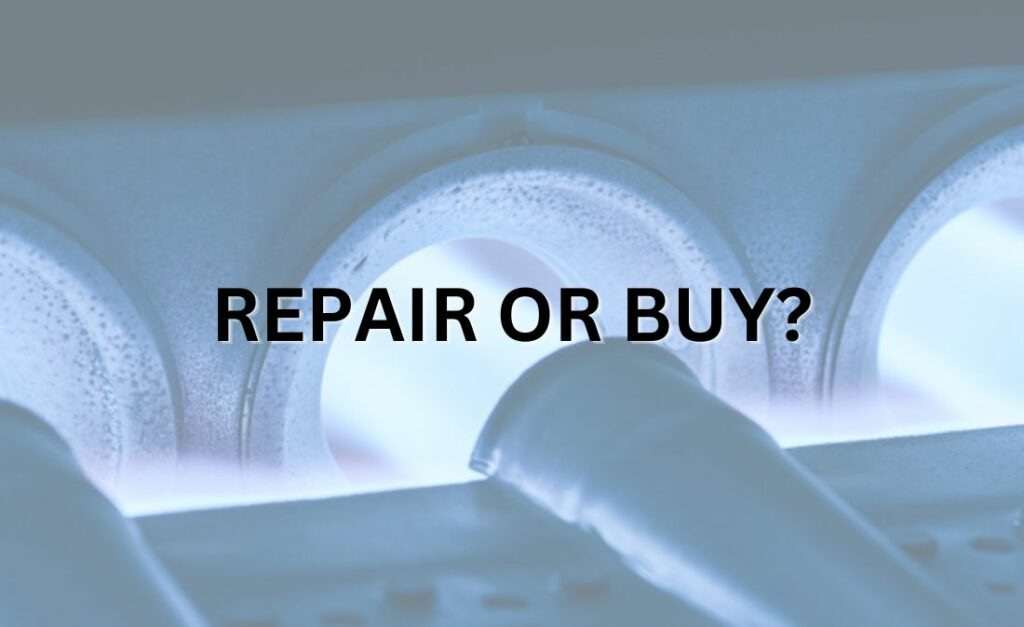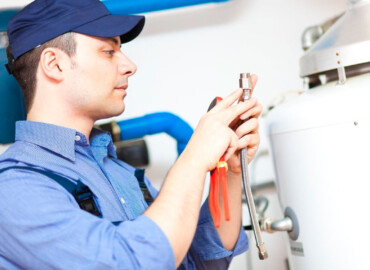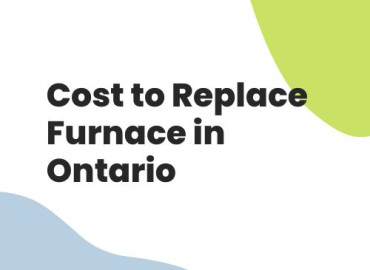Do You Need a New Heat Exchanger And How Much It Cost?
Replacing a heat exchanger in a furnace is a crucial task that requires careful consideration and professional expertise. It is essential to understand the importance of a functioning heat exchanger in maintaining the efficiency and safety of your HVAC system. In this comprehensive guide, we will provide you with all the information you need to know about replacing a heat exchanger in your furnace. From understanding what a heat exchanger is to the cost implications and the decision-making process, we’ve got you covered.
What is a Heat Exchanger and Why is it Important?
A heat exchanger is a component of your furnace that plays a critical role in the heating process. It is responsible for transferring heat from the combustion chamber to the surrounding air, ensuring that your home is adequately heated. The heat exchanger separates the combustion gases, such as carbon monoxide, from the clean air that is circulated throughout your home. This separation is essential for maintaining indoor air quality and preventing the harmful effects of carbon monoxide exposure.
What Are The Signs of a Damaged Heat Exchanger?
Detecting a damaged heat exchanger is crucial for the safety and efficiency of your furnace. Here are some signs that indicate a potential issue with your heat exchanger:
- Cracks or Visible Damage: Inspect your heat exchanger for any visible cracks or signs of damage. Cracks in the heat exchanger can lead to the leakage of harmful gases, posing a significant health risk to you and your family.
- Carbon Monoxide Detector Alerts: If your carbon monoxide detector goes off, it could be a sign of a cracked heat exchanger. Carbon monoxide is a colorless and odorless gas that can be lethal in high concentrations. If your detector alerts you, it’s crucial to turn off your furnace immediately and seek professional assistance.
- Uneven Heating or Cold Spots: If you notice that certain areas of your home are not adequately heated or experience cold spots, it could be an indication of a malfunctioning heat exchanger. Inefficient heat distribution is a common symptom of a damaged heat exchanger.
- Increased Energy Bills: A damaged heat exchanger can lead to decreased efficiency and increased energy consumption. If you notice a sudden spike in your energy bills without any apparent explanation, it may be due to a faulty heat exchanger.
If you observe any of these signs, it is crucial to contact a certified HVAC technician to assess the situation and determine whether a heat exchanger replacement is necessary.
The Decision-Making Process: Repair or Replace?
When faced with a damaged heat exchanger, you will need to make a decision between repairing or replacing your furnace. Several factors should be considered during this decision-making process:
- Age of the Furnace: The age of your furnace is an important consideration when deciding whether to repair or replace the heat exchanger. If your furnace is relatively new and has many years of service life remaining, it may be more cost-effective to replace the heat exchanger. However, if your furnace is nearing the end of its expected lifespan, it may be more prudent to invest in a new furnace instead.
- Cost: The cost of replacing a heat exchanger can vary depending on various factors, such as the type of furnace and the extent of the damage. On average, the cost of replacing a heat exchanger ranges from $2,000 to $3,500. It is essential to compare this cost with the potential cost of a new furnace to determine the most cost-effective option.
- Functionality and Efficiency: If your furnace is no longer functioning properly or has experienced a significant decline in efficiency, it may be a sign that a heat exchanger replacement is not enough. In such cases, investing in a new furnace may be a more practical solution to ensure optimal heating performance and energy efficiency.
- Safety Concerns: Safety should be a top priority when dealing with a damaged heat exchanger. If your heat exchanger has cracks or other issues that pose a risk of carbon monoxide leakage, it is crucial to take immediate action to protect your health and safety. In such cases, replacing the heat exchanger or the entire furnace may be necessary to ensure a safe living environment.
4. The Process of Replacing a Heat Exchanger
Replacing a heat exchanger is a complex task that requires the expertise of a certified HVAC technician. Here is an overview of the typical process involved in heat exchanger replacement:
- Professional Assessment: A certified HVAC technician will assess the condition of your heat exchanger and determine whether replacement is necessary. They will inspect the heat exchanger for cracks, leaks, or other signs of damage to make an informed recommendation.
- Choosing the Right Heat Exchanger: If a heat exchanger replacement is recommended, the technician will help you choose the appropriate heat exchanger for your furnace. Factors such as the furnace model, size, and compatibility will be taken into consideration to ensure a proper fit.
- Removal of the Old Heat Exchanger: The old heat exchanger will be carefully removed from the furnace. This process may involve disconnecting gas lines, electrical connections, and other components to gain access to the heat exchanger.
- Installation of the New Heat Exchanger: The new heat exchanger will be installed in the furnace, ensuring proper alignment and connection to the combustion chamber, blower, and other essential components.
- Testing and Inspection: Once the new heat exchanger is installed, the HVAC technician will conduct thorough testing and inspection to ensure that the furnace is functioning correctly and that there are no gas leaks or other safety issues.
- Clean-up and Maintenance: After the replacement process is complete, the HVAC technician will clean up the work area and provide you with any necessary maintenance instructions to ensure the longevity and efficiency of your furnace.
Cost of Heat ExchangerReplacement
The cost of heat exchanger replacement can vary depending on several factors, including the type of furnace, the extent of the damage, and the region. On average, homeowners can expect to pay between $2,000 and $3,500 for heat exchanger replacement. However, it is crucial to obtain a detailed cost estimate from a certified HVAC technician to get an accurate understanding of the expenses involved.
Preventive Maintenance and Care of Heat Exchanger
To prolong the lifespan of your furnace and minimize the risk of heat exchanger damage, it is essential to prioritize preventive maintenance and regular care. Here are some tips to keep your furnace in optimal condition:
- Schedule Annual Inspections: Arrange for annual inspections and maintenance checks by a certified HVAC technician to identify any potential issues before they escalate.
- Replace Air Filters: Regularly replace air filters to ensure proper airflow and prevent debris from accumulating in the furnace.
- Keep Vents and Registers Clean: Clean and clear vents and registers regularly to maintain optimal airflow throughout your home.
- Address Any Issues Promptly: If you notice any unusual sounds, smells, or performance issues with your furnace, contact a professional HVAC technician immediately to address the problem before it worsens.
- Follow Manufacturer’s Guidelines: Refer to your furnace’s user manual and follow the manufacturer’s guidelines for maintenance and care to ensure optimal performance and longevity.
Conclusion
Replacing a heat exchanger in your furnace is a significant decision that should be approached with careful consideration. Understanding the signs of a damaged heat exchanger, weighing the cost implications, and seeking professional advice are crucial steps in making an informed choice. By investing in professional HVAC services, following preventive maintenance practices, and choosing the right HVAC service provider, you can ensure the longevity, efficiency, and safety of your HVAC system. Remember, the comfort and well-being of your home depend on a properly functioning heat exchanger and a well-maintained furnace.
If you are looking for a furnace repair service in Toronto, Call us.




